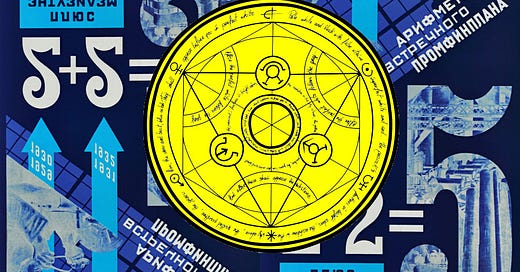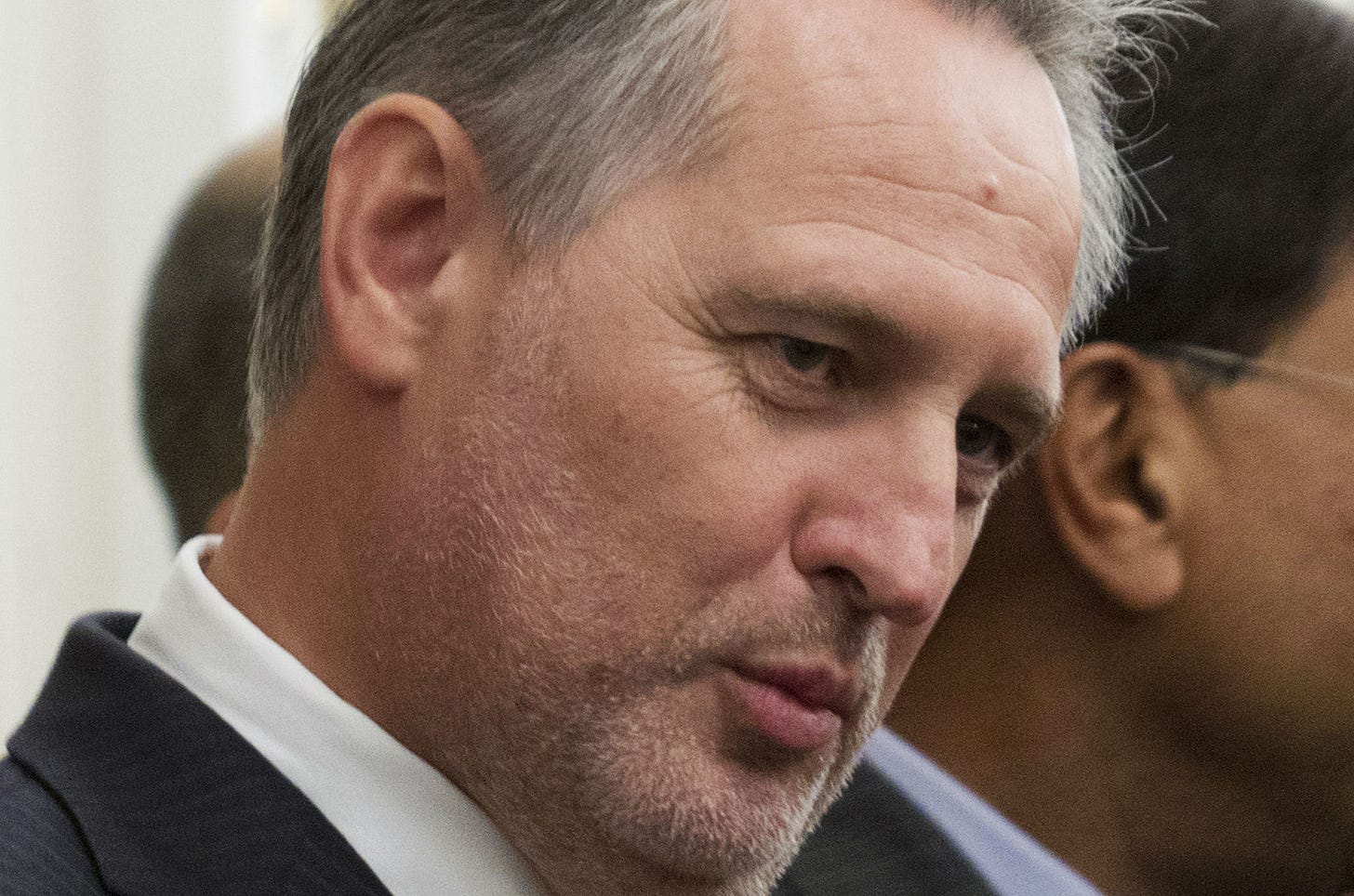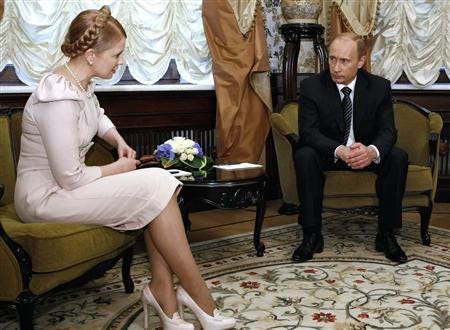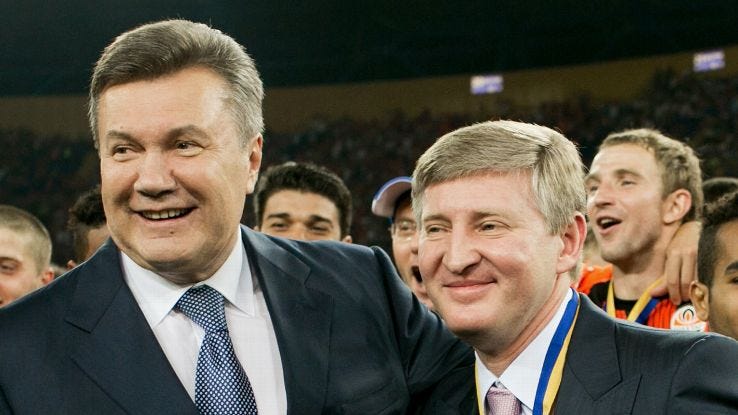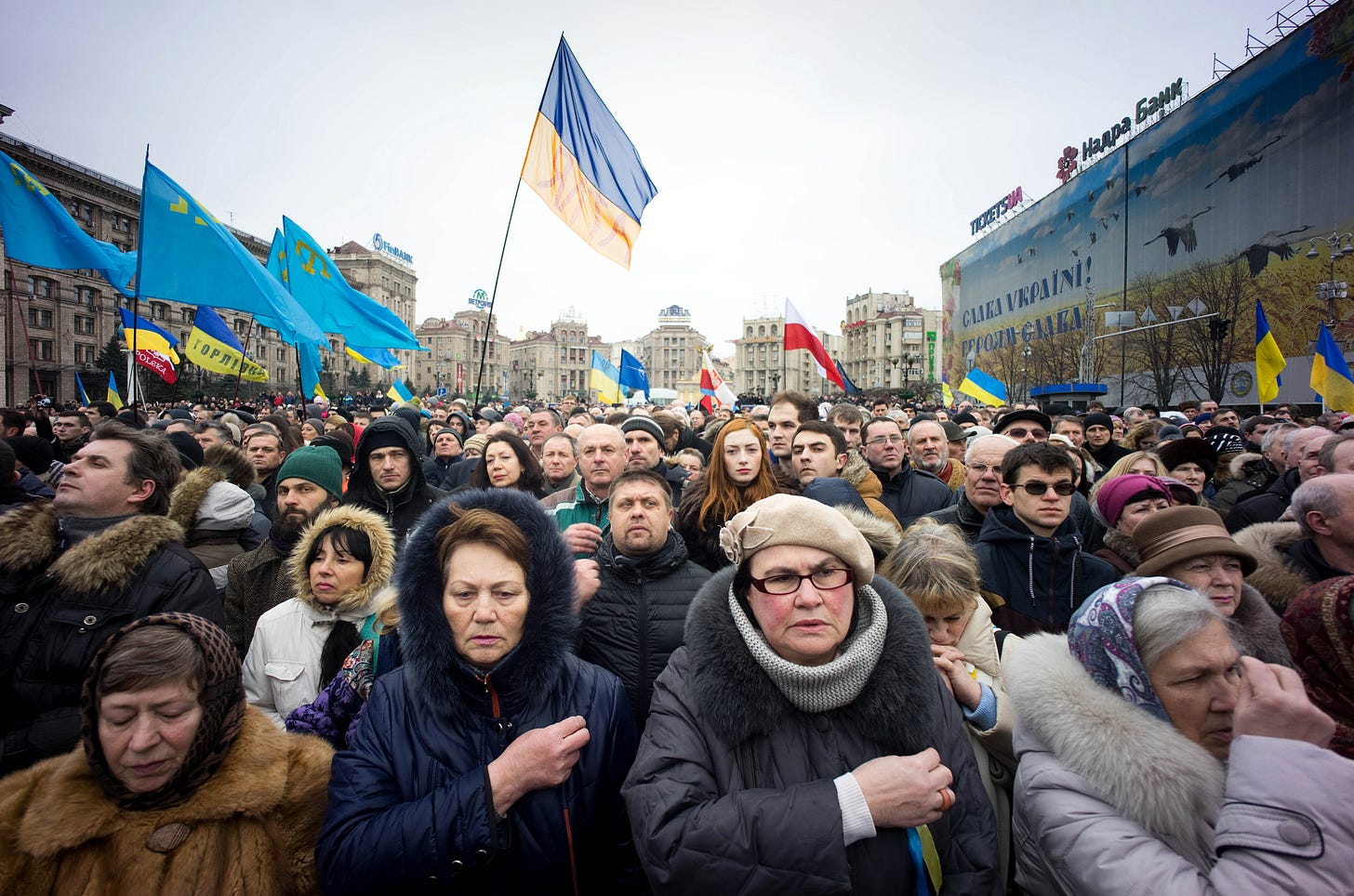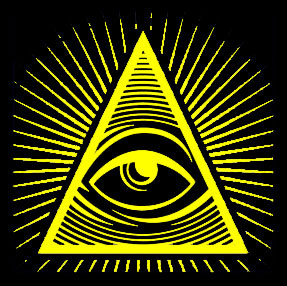When Deep Throat advised rookie reporter Bob Woodward to “Follow the money” in the 1976 film, All the President’s Men, he laid out a fundamental dictum for generations of investigative reporters. Where there’s political strife on the surface, there’s usually an economic fistfight below.
(On a trivial note, the line uttered by Hal Holbrook to Robert Redford in the underground parking garage was invented by screenwriter William Goldman, not Woodward, Carl Bernstein or their shadowy, high-level source).
When I follow the money on the current war in Ukraine, I find a battle for European market share in natural gas. Russia’s got it and Europe needs it. Everything else is geopolitical window-dressing.
Current narratives of the war miss this. For many, Russia has launched an aggressive, unprovoked attack with imperial designs on its struggling, freedom-loving neighbor. The Russo-Ukrainian War is six months old, driven by the irrational, power-mad Russian president Vladimir Putin.
For others, NATO (led by the U.S.) has expanded its imperial, anti-Russian power grab to Russia’s doorstep. The war broke out in 2014 after the violent overthrow of Ukraine’s Donbas-born president Viktor Yanukovych, replaced by pro-West oligarch Petro Poroshenko.
In a third narrative, we are witnessing the Ukrainian civil war sparked by the collapse of the Soviet republic. People in the Western and Central provinces generally speak Ukrainian, are Catholic and lean to the West, pitted against Southern and Eastern regions where people speak Russian, are Orthodox and prefer the Old World.
While there is truth in all these political scenarios, following the money leads to a war driven by oil and gas profits. The generals are oligarchs (and the politicians who serve them).
I don’t think you can understand Ukrainian Calculus without looking closely at Ukrainian Alchemy. It will come as no surprise that the United States has become the world’s top exporter of liquefied natural gas (LNG) almost overnight.
Oligarch Money
Once upon a time, the Soviet Union was the main supplier of natural gas to Europe. When the USSR collapsed into a gaggle of independent republics, Russia still had the gas fields – but Ukraine had the pipelines to the West. For 15 years, Russian and Ukrainian oligarchs wrangled over who would own and profit from various aspects of the gas business.
The name “oligarch” has been used to describe Russian and Ukrainian tycoons who swept up former state-run industries for pennies on the ruble. Some of them hold political office, others bankroll politicians who give them advantage. Wealthy businesspeople running countries is a fairly common phenomenon, we just call them by other names.
The election of Vladimir Putin in 2000 ushered in a new era of economic mud-wrestling. Putin reined in the old oligarchs in Russia and seeded a new generation loyal to him through lucrative state contracts. He also reined in Ukraine by setting up a natural gas middleman deal with a mysterious company, RosUkrEnergo.
Ukrainian oligarch Dmytro Firtash / Reuters
Pro-Russian Ukrainian oligarch Dmytro Firtash made billions buying gas low and selling it high. Some of that money ended up funding the campaigns of pro-Russian politicians in Ukraine. The deal really irritated pro-West oligarch Yulia Tymoshenko, who would spend as much time being prime minister as she did serving jail time for corrupt gas trading.
Middleman Money
In her first stint as premier in 2005, Tymoshenko tried investigating RosUkrEnergo – only to be fired by pro-West President Viktor Yushchenko. Suddenly Firtash was supplying all of Ukraine's natural gas imports from Russia and other Central Asian countries like Turkmenistan.
Not one to give up easily, Tymoshenko mustered enough parliamentary support to get appointed prime minister again at the end of 2007. She vowed to eliminate the middlemen.
First, she took aim at Vanco Prykerchenska, a shadowy company in an agreement to exploit oil and gas reserves in the Black Sea. Tymoshenko suddenly scrapped the deal. It turns out the Houston-based Vanco worked at the behest of Ukrainian oligarch Rinat Akhmetov, the wealthiest man in the country. (Ahkmetov had quietly hired controversial American consultant Paul Manafort to help rehabilitate Yanukovych and the Party of Regions for a run at prime minister in 2006.)
Then, through some combination of irresistible price concessions and beautiful gold braids, she persuaded Putin to dump Firtash in 2009.
Putin and Tymoshenko didn’t meet at that long table. /Reuters
Gazprom, the Russian state natural gas utility, claimed the U.S. was behind the Ukrainian maneuvering – the first mention I could find that the U.S. might want to muscle some market share away from Russia.
“They are dancing to the music which is being orchestrated not in Kiev but outside the country," Gazprom deputy chief executive Alexander Medvedev told reporters on a conference call in January, 2009.
Medvedev said he was referring to an agreement signed between the Ukraine and the U.S. While he did not name the agreement, the new Obama Administration had orchestrated the United States-Ukraine Charter on Strategic Partnership, pledging to rehabilitate and modernize Ukraine’s gas transit infrastructure.
Firtash was livid. Not only did Ukraine cut him out, but confiscated a massive stockpile of his ill-gotten gas. He sued to get it back and plowed millions into the man whose vote-rigging in the 2004 election set off the Orange Revolution, pro-Russia opposition candidate Viktor Yanukovych.
EU Money
By the end of 2011, Yanukovych had beaten Tymoshenko (albeit barely) in the presidential race and charged her with a dozen crimes, including giving the store away to Putin.
Viktor Yanukovych (left) enjoys a soccer match with his old friend, oligarch Rinat Akhmetov.
Tymoshenko was sentenced to seven years in prison. Firtash was back in the middle, doing business as Ostchem Holding in Cyprus. Gazprom sold him gas far below market value with the stated purpose of helping Ukraine’s petrochemical industry.
Yanukovych immediately extended the lease for Russia’s Black Sea fleet base at Sevastopol until 2042 – in return for price breaks on Russian natural gas. Ukraine officially abandoned its goal of joining NATO.
Joining the EU was another matter, however, a much more popular proposition than NATO membership. While Yanukovych was the obvious pick for Moscow, the new Ukrainian president tried to play both sides. Akhmetov’s Party of Regions even hired top D.C. lobbyists The Podesta Group to ingratiate Yanukovych to Washington.
In March 2012, the EU and Ukraine initiated an Association Agreement. The EU offered $839 million in increased trade and prospects of various aid and financing programs.
In return, Ukraine would address a "stark deterioration of democracy and the rule of law,” including the imprisonment of Tymoshenko.
Yanukovych didn’t like the West’s fixation on Tymoshenko – the one person who could probably beat him in the next election – and he certainly didn’t like the bottom line. Russia was pressuring Ukraine to abandon the EU agreement by halting the exportation of goods from Ukraine. The president figured the EU and/or the International Monetary Fund would need to cough up $160 billion over three years to compensate for the trade Ukraine stood to lose with Russia, according to Reuters.
In November 2013, Yanukovych suddenly scrapped the process, announcing a $15-billion bailout from Russia and new discounts on natural gas. The decision sparked three months of “Euromaidan” protests and riots in Kyiv, ending with more than 20 deaths and hundreds of injuries in police clashes.
Hundreds of thousands of Ukrainians take to the streets of Kyiv in late 2013 and early 2014 / NPR
Yanukovych fled for his life in what some have called a coup – aided or supported by the West. In the anti-Russian tide, Tymoshenko was released from prison and Firtash was arrested in Vienna on behalf of U.S. law enforcement charging him with bribery. Firtash is still fighting extradition to the U.S.
Russia’s subsequent occupation of Crimea and support of Russian-speaking secessionists in the Eastern Donbas region set the stage for a new economic weapon – sanctions.
Sanctions Money
A few months ago, I re-watched a 2016 episode of Elementary, a modern TV rendering of Sherlock Holmes. As I recently reported, a scene from “Murder Ex Machina” is a quick study in how different businesses profit from war – and sanctions.
Sherlock and Watson meet an arms dealer named Soble in an effort to solve the mysterious murder of a Russian oligarch in New York City. “Dutch natural gas, Azerbaijani caviar, Polish vodka, Norwegian lumber,” Soble tells the detectives. “The folks who make money are the ones who provide an alternative source for the things the Russians can't export because of the sanctions.”
A fictional arms dealer explains how different businesses profit from war and sanctions.
Gazprom provides 40 percent of gas consumed in the EU, according to the International Energy Agency. Russia’s biggest customer in Europe is Germany and for decades, gas has been delivered mostly by pipelines running though Ukraine. Since 2011, Russia has tried to cut the whole Ukrainian mess out of the natural gas loop.
Nord Stream, the longest sub-sea pipeline in the world, began exporting Russian natural gas directly to Germany under the Baltic Sea. Russia could bypass countries that profited handsomely from overland transit fees (Ukraine, Slovakia, Czech Republic, Belarus and Poland).
Just as nine EU countries signed a protest of Nord Stream 2 in 2016, the U.S. began exporting liquefied natural gas (LNG) to Europe from Cheniere Energy’s Sabine Pass export terminal in Louisiana. The more U.S. and European politicians protest Nord Stream 2 – which would double Russia’s capacity to run natural gas around Ukraine – the more U.S. capacity for shipping natural gas has increased.
In late July, the U.S. Energy Information Administration announced that the United States had become the world’s top exporter of liquefied natural gas (LNG). The jump in sales was attributed to supplying Europe amid the Ukraine crisis.
“Europe is struggling to sock away enough gas into storage prior to winter because Russia has severely curtailed gas shipments via pipeline to the continent,” Reuters reported, “after the United States and allies put sanctions on Moscow.”
The headlines today portend disaster as Russian forces occupy Ukraine’s Zaporizhzhya nuclear power plant, the largest in Europe. Nuclear fuel for the plant has historically come from Russia – but thanks to sanctions, Westinghouse has increased its market share to 30 percent.
Follow the money!

